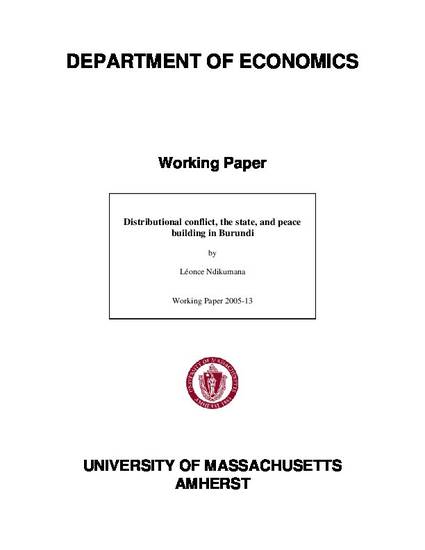
This paper examines the causes of conflict in Burundi and discusses strategies for building peace. The analysis of the complex relationships between distribution and group dynamics reveals that these relationships are reciprocal, implying that distribution and group dynamics are endogenous. The nature of endogenously generated group dynamics determines the type of preferences (altruistic or exclusionist), which in turn determines the type of allocative institutions and policies that prevail in the political and economic system. While unequal distribution of resources may be socially inefficient, it nonetheless can be rational from the perspective of the ruling elite, especially because inequality perpetuates dominance. However, because unequal distribution of resources generates conflict, maintaining a system based on inequality is difficult because it requires ever increasing investments in repression. It is therefore clear that if the new Burundian leadership is serious about building peace, it must engineer institutions that uproot the legacy of discrimination and promote equal opportunity for social mobility for all members of ethnic groups and regions.
Available at: http://works.bepress.com/leonce_ndikumana/5/
